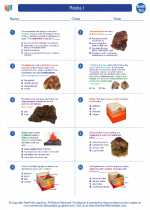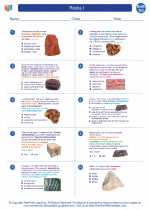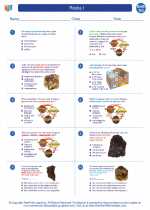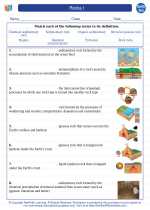Purity
Purity refers to the degree to which a substance is free from contaminants or other substances. In the context of Earth Science, purity is often discussed in relation to minerals, water, and air.
Minerals
Mineral purity is determined by the absence of impurities within the crystal structure. Pure minerals have a consistent chemical composition and internal atomic arrangement.
Water
Purity of water is assessed based on the absence of pollutants, chemicals, and microorganisms. It can be measured through various parameters such as pH, turbidity, and dissolved oxygen levels.
Air
In the context of air quality, purity refers to the absence of pollutants, particulate matter, and harmful gases such as carbon monoxide and sulfur dioxide.
Study Guide
Here are some key points to remember when studying purity:
- Understand the concept of purity and its importance in different Earth Science contexts.
- Learn how purity is measured for minerals, water, and air.
- Be familiar with the methods used to assess purity, such as chemical analysis, filtration, and air quality monitoring.
- Explore the impact of impurities on the properties and usability of substances.
[Purity] Related Worksheets and Study Guides:
.◂Earth Science Worksheets and Study Guides High School. Rocks I

 Worksheet/Answer key
Worksheet/Answer key
 Worksheet/Answer key
Worksheet/Answer key
 Vocabulary/Answer key
Vocabulary/Answer key
 Vocabulary/Answer key
Vocabulary/Answer key
 Vocabulary/Answer key
Vocabulary/Answer key
